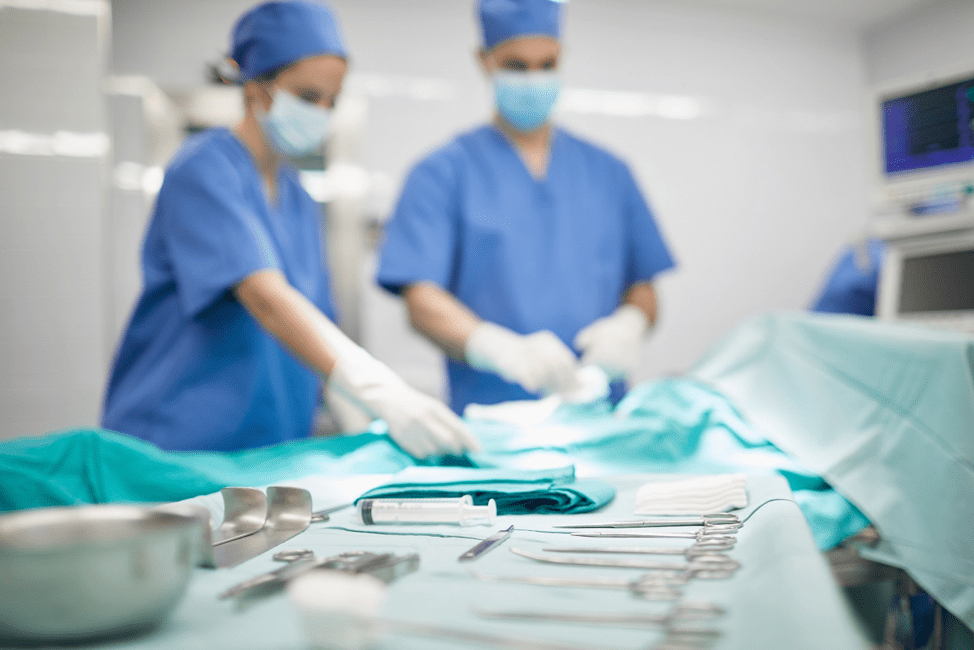Defective Medical Device Attorney
Tens of millions of Americans live with medical devices implanted in their bodies, from artificial joint and heart defibrillators to surgical mesh. Although these devices are tested for safety and effectiveness, dangerous parts and models still reach the market. When that happens, you have the right to consult with a defective medical device lawyer to learn your compensation options.
While medical device manufacturers may be large and powerful corporations, they are not invincible. They can—and should—be held accountable when they sell defective devices. At Searcy Denney, we have a long history of successfully suing companies that manufacture defective medical devices—and if you have a claim, we can use this experience to seek the financial compensation you deserve.
What Is Considered a Medical Device?
How do you know if you have a claim for a medical device defect? The first step is understanding what is considered a medical device. The U.S. Food and Drug Administration (FDA) defines a medical device as “an[y] instrument, apparatus, implement, machine, contrivance, implant, in vitro reagent, or other similar or related article, including any component, part, or accessory, which is . . . :
- “[I]ntended for use in the diagnosis of disease or other conditions, or in the cure, mitigation, treatment, or prevention of disease . . . or
- “[I]ntended to affect the structure or any function of the body . . . and which does not achieve its primary intended purposes through chemical action . . . and which is not dependent upon being metabolized.”
The FDA classifies medical devices as Class I, Class II or Class III. Class I medical devices include things such as bandages and surgical instruments. Class II medical devices include things such as wheelchairs and infusion pumps that present greater risks—and, therefore, require greater care during the design and manufacturing processes. Class III medical devices include replacement heart valves, hip and knee replacements, and other implantable devices. Defects in these devices generally present the greatest risks for patients, and, as a result, they are subject to the highest level of oversight from the FDA.
But, despite this oversight, lots of defective medical devices still find their way into patients’ hands and patients’ bodies. As a result, if you have concerns about a medical device, you should not ignore them. Instead, you should speak with a defective medical device lawyer promptly, and you should follow your lawyer’s advice about filing a claim.
When Is a Medical Device Considered Defective?
Similar to pharmaceutical drugs, medical devices must receive clearance from the FDA before they are made available to consumers. Devices can be fast-tracked through a program called 501 (k) in which a device must prove it is substantially equivalent to one already in distribution in the United States. Unfortunately, this standard can sometimes backfire.
People and companies who manufacture, distribute, market and sell products are obligated to ensure their product is safe for use and not unreasonably dangerous for the consumer. If a medical device is defective or later found harmful, those involved in creating and distributing the product may be held liable for any resulting damages.
Our Defective Medical Device Lawyers Outline Some of the Most Dangerous Products
The following devices have high reports of injuries, side effects, or failure:
Metal-on-Metal Hip Replacements
Metal-on-metal hip replacements may fray, causing metal shavings to become lodged into the surrounding tissue or enter the bloodstream. This can cause a condition called metallosis, or metal poisoning. Metal-on-metal hip implants include the following manufacturers or brands: Biomet, Depuy, Johnson & Johnson, Smith & Nephew, Wright, and Zimmer. It is common for patients to be unsure which type of hip implant they have received.
Stryker Rejuvenate Hip Implant
Stryker Rejuvenate hip implants fail at high rates. This metal-on-metal hip is prone to splintering and releasing toxic levels of metal into the patient’s bloodstream. Our defective medical device lawyers began investigating the product before the FDA took action and it was recalled. We were also the first to file a Stryker hip failure lawsuit. Searcy Denney remains a leader in the Stryker litigation and has been named to the multi-district litigation (MDL) steering committee.
DePuy Hip Implants
Johnson and Johnson recalled 29 models of its DePuy hip implants in August 2010 because of their high rates of failure. When a prosthetic hip fails, patients suffer debilitating pain and must endure additional surgeries to replace the defective device. We have represented DePuy Hip Implant victims from around the country and successfully fought to bring them the compensation they deserve.
IVC FIlters
Inferior vena cave filters, known as IVC filters, were developed as temporary, “retrievable” filters designed to catch and prevent blood clots from entering the heart and lungs of patients who are at high risk for pulmonary embolisms. Unfortunately, IVC filters have been linked to an increasing number of complications, such as migration and perforation of various organs in the body.
Vaginal Meshes
Often referred to as a transvaginal mesh, this device is surgically implanted to relieve symptoms of stress urinary incontinence (SUI) and pelvic organ prolapse (POP) — conditions sometimes arising from hysterectomy, vaginal delivery, obesity or smoking. Unfortunately, for many women, vaginal meshes cause more severe medical problems, including inflammation, infection, pelvic abscesses, vaginal discharge, painful intercourse, damage to surrounding organs and puncture of blood vessels, bladder or bowel. Many patients require additional surgeries to repair the injuries while some are left with permanent disabilities.
Mirena IUD
The Mirena IUD is a form of birth control that is implanted in a woman’s uterus and releases steady amounts of synthetic progesterone levonorgestrel. Medical problems associated with the Mirena IUD include Pseudotumor Cerebri, uterine perforation, pelvic inflammatory disease, and ovarian cysts. Ectopic pregnancy and miscarriage may occur when the IUD fails. In addition, the birth control device may migrate and result in scarring, hysterectomy, infertility, or even death.
Hernia Mesh
Consequences of Dangerous Medical Devices
Dangerous medical devices can cause a wide range of complications which can lead to lifelong complications. Some common consequences of dangerous medical devices include:
- Pain
- Infection
- Worsening symptoms
- Permanent disability
- Revision surgery
- Death
For those suffering from injuries by medical devices, your defective medical device lawyer can fight for compensation such as:
- Medical bills
- Rehabilitation costs
- Lost wages
- Pain and suffering
- Funeral costs
Additional Medical Devices Include:
- Allergan Breast Implants
- Exactech Shoulder Replacements
- Exactech Hip Implant
- Exactech Knee Implant
- Ethicon Surgical Stapler
Who Is Liable for a Medical Device Defect?
If you have a claim for a medical device defect, who is liable? In most cases, seeking just compensation for losses caused by a defective medical device involves filing a claim against the manufacturer. Companies that manufacture and sell defective products are strictly liable for the harm their products cause—which means that proof of negligence is not required.
Medical Device Surgeons Often Receive Kickbacks
Many current mass tort litigations involving defective medical devices have uncovered how some surgeons receive compensation and other kickbacks for using and promoting a company’s medical device, even if the data does not support the device’s safety.
Medical device manufacturers have made billions across industries, and doctors working closely with these companies earn substantial compensation in consulting fees. However, what may be more worrisome is not that some surgeons receive kickbacks for their use and promotion of products, but that they receive training on tips and techniques for using new medical devices from sales representatives who are not medical doctors.
Unfortunately, the collective conduct of medical device manufacturers, sales representatives, and some surgeons has contributed to the increase in patient injuries that often lead to permanent disability and the need for one or more additional revision or repair surgeries. No patient deserves to suffer at the hands of defective medical devices and negligence.
Breaking Down Potential Liability
Similar to dangerous drugs, dangerous medical devices fall under the category of product liability. This can include:
- Defective Manufacturing: Lawsuits stemming from manufacturing defects often argue that while the product was originally safe in design, it became dangerous due to an issue in the manufacturing process.
- Design Defects: A civil action based on defective design alleges that the product is inherently dangerous based on its design alone, rather than an error made during the manufacture of the product.
- Failure to Warn: The plaintiff claims in a product liability case about warning or labeling defects that the product contained inherent dangers and the manufacturer neglected their legal obligation to inform consumers of these dangers.
Depending on the circumstances of your case, the device manufacturer, the laboratory that tested the device, or the issuing doctor or hospital.
How Can a Defective Medical Device Lawyer at Searcy Denney Help You?
With our experience representing patients and families who have been harmed by defective medical devices, we can help you regardless of what happened and what medical device manufacturer is responsible. Here is what you can expect when you hire a defective medical device lawyer at Searcy Denney to represent you:
- Evaluating Your Claim – We will review your (or your loved one’s) medical records and consult with trusted medical experts to evaluate your claim.
- Calculate Your Losses – If you have a claim for a medical device defect, we will carefully calculate the losses you are entitled to recover—including the losses you and your family will incur in the future.
- Suing the Medical Device Company – We will sue the medical device company that is responsible for your family’s losses, and, in doing so, we will seek the full financial compensation you and your family deserve.
- Negotiating for an Out-of-Court Settlement – Your defective medical device lawyer will negotiate for a fair settlement, and if the manufacturer makes a settlement offer, we will help you decide whether to accept it.
- Going to Court if Necessary – While many successful defective medical device lawsuits settle, we will not hesitate to fight for your legal rights in court if necessary.
When to Contact a Defective Medical Device Attorney
Searcy, Denney, Scarola, Barnhart & Shipley is a premier medical device liability law firm founded more than 45 years ago to protect consumers from unsafe medical devices and drugs. Our litigation team represents injured patients and their families throughout the United States in claims against the multi-billion dollar “Big Pharma” companies and medical device manufacturers. Together with the resources of the firm and more than $5.8 billion in recoveries, we aggressively pursue the corporations responsible for serious injuries and fatalities caused by dangerous medical products. If you have experienced pain, disability, illness, additional surgeries or other problems with your medical device, you can take action against those responsible for your losses. Contact us by calling (800) 780-8607 or contact our firm online to schedule a free no-obligation consultation with our experienced defective medical device attorneys.





